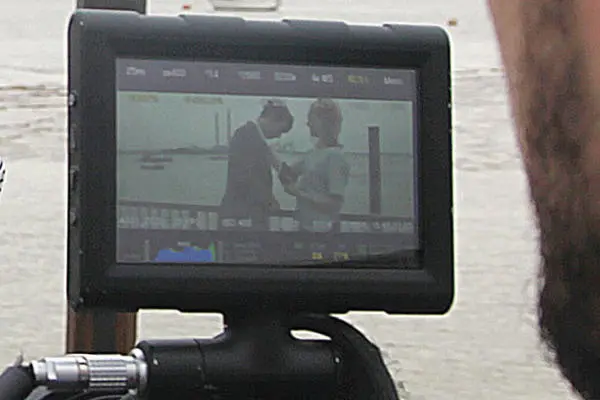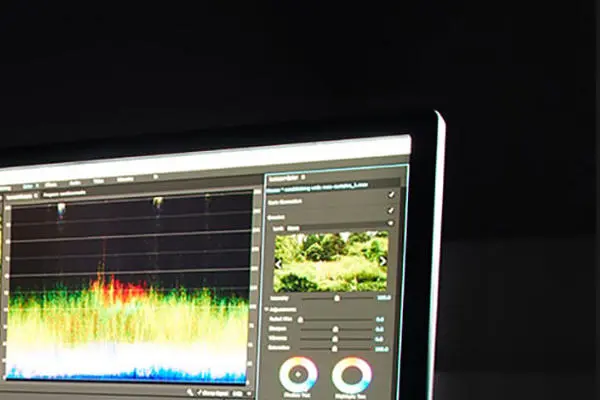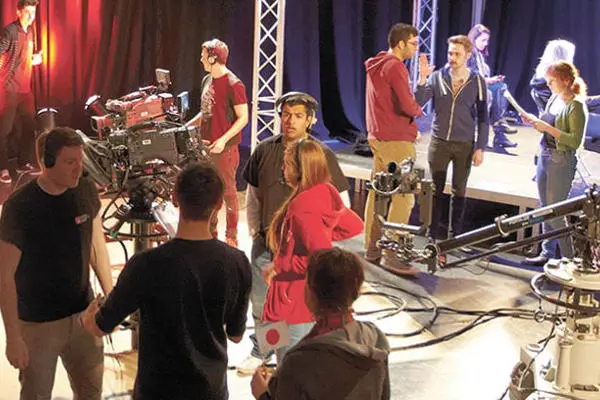
What is your current role, and what does it involve?
After graduating, I began my career in animation before transitioning into scripted television. In my current role as a Production Assistant, I support the production team by managing a variety of essential tasks. These include running errands, maintaining and updating production logs, reconciling expenses, and providing day-to-day logistical and administrative support to ensure smooth operations on set and in the office.
What led you to pursue a career in production management?
I became interested in production management after completing our Final Major Project in my third year. I loved the organisational side of things and enjoyed helping bring together all the moving parts—such as crew, cast, costume, practical effects, sets, and action vehicles—to create a cohesive final product.
What types of productions have you worked on so far?
So far, I’ve worked on a range of productions including animation, social media content, and scripted TV. My credits include:
- JoJo and Gran Gran Series 1 and 2 (CBeebies)
- Love is Blind UK Podcast (Netflix)
- Sesame Street specials, episodes, and YouTube shorts (HBO)
- Can You Keep a Secret – a comedy series (ITV)
What are the biggest challenges and rewards of working in production coordination?
The main challenge for me is the unpredictability of work. While some productions run for long periods, it can be difficult to line up the next job once one wraps. Also, finding work isn’t always straightforward, as many jobs aren’t listed on traditional job sites but instead shared in Facebook or WhatsApp groups, or come through your network.
The biggest reward is seeing the final product on TV. Watching something you and your team worked hard on come together is incredibly satisfying and makes all the long days worthwhile.


The course helped me tremendously. I developed soft skills such as teamwork, timekeeping, organisation, problem-solving, and confidence, as well as practical skills like scheduling, creating call sheets, budgeting, liaising with clients and collaborators, and handling logistics.
What key skills do you think are essential for this role?
The key skills are adaptability, a positive attitude, and the willingness to ask questions. Being able to adapt quickly to the changing needs of a production is vital, as unexpected issues often arise. A can-do attitude shows that you're happy to be there, makes you approachable, and helps maintain team morale.
How do you approach problem-solving when unexpected issues arise on set?
I take a moment to assess the situation, ensure I fully understand the problem and its implications, and then start thinking of potential solutions. I’ve learned not to shy away from suggesting creative ideas—sometimes it’s quicker and more efficient to adapt something we already have rather than start from scratch. I also consider whether it’s a matter of running to the shops or outsourcing a solution, even if it comes at a premium. After assessing time and cost, I usually present a few options to my Production Manager, who will make the final call. Having these solutions ready shows initiative and the ability to think on your feet.
What advice would you give to students looking to start a career in production management?
Be flexible and open to opportunities. After university, even with my degree, I took a paid apprenticeship that helped me grow, develop, and earn my first credits. The number of paid traineeships and work experience opportunities has grown in recent years, so keep an eye on TV industry websites and apply! On-the-job training is the best way to learn, so take those chances when they come.
Can you share a memorable experience from your career so far?
One of my most memorable experiences was when JoJo and Gran Gran—the first animation to focus on a Black British family—was first broadcast. Watching my little nieces and nephew enjoy it drove home how important Black representation is on screen, especially in children’s TV.














